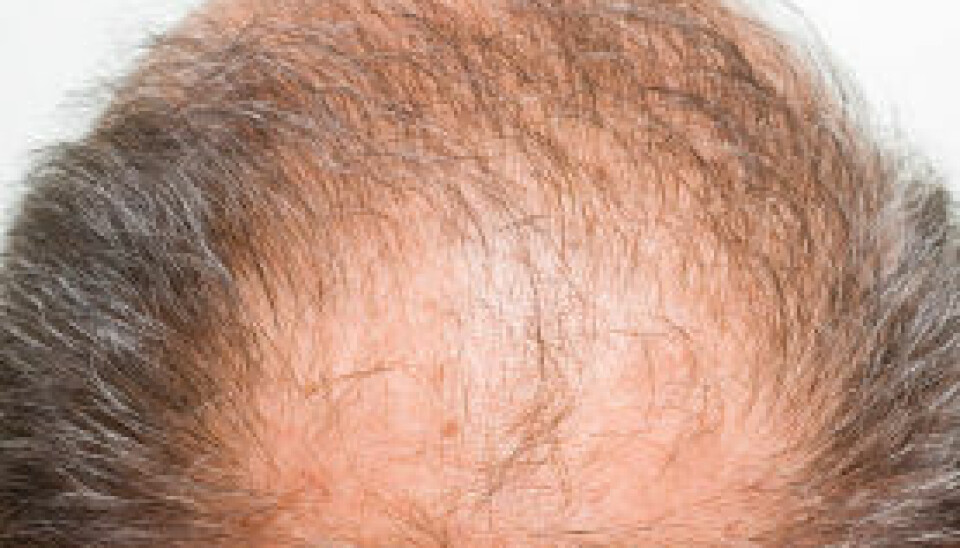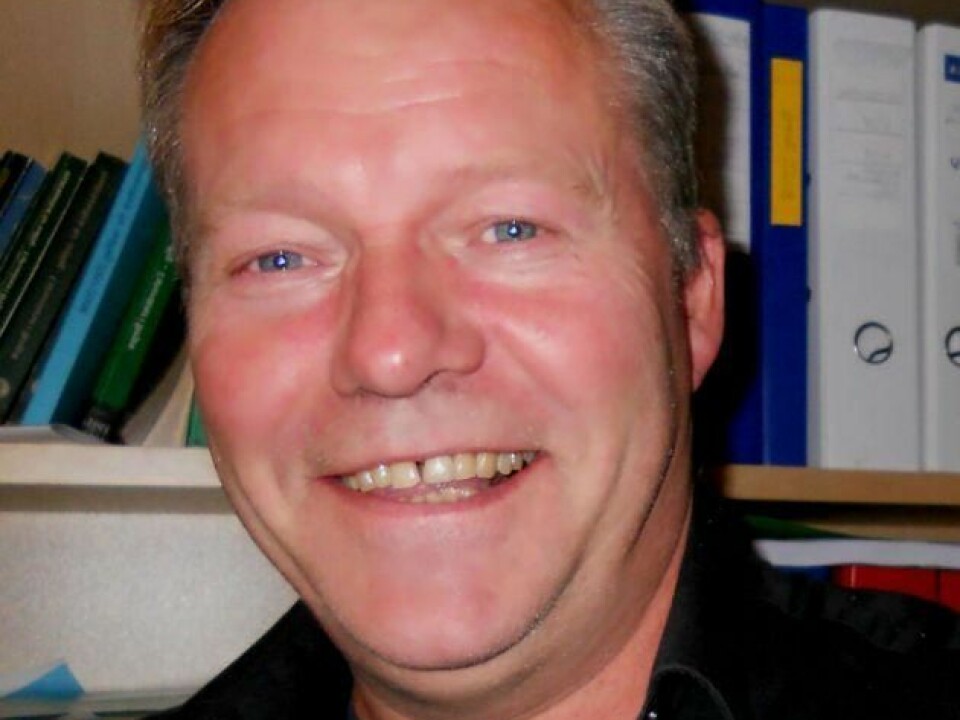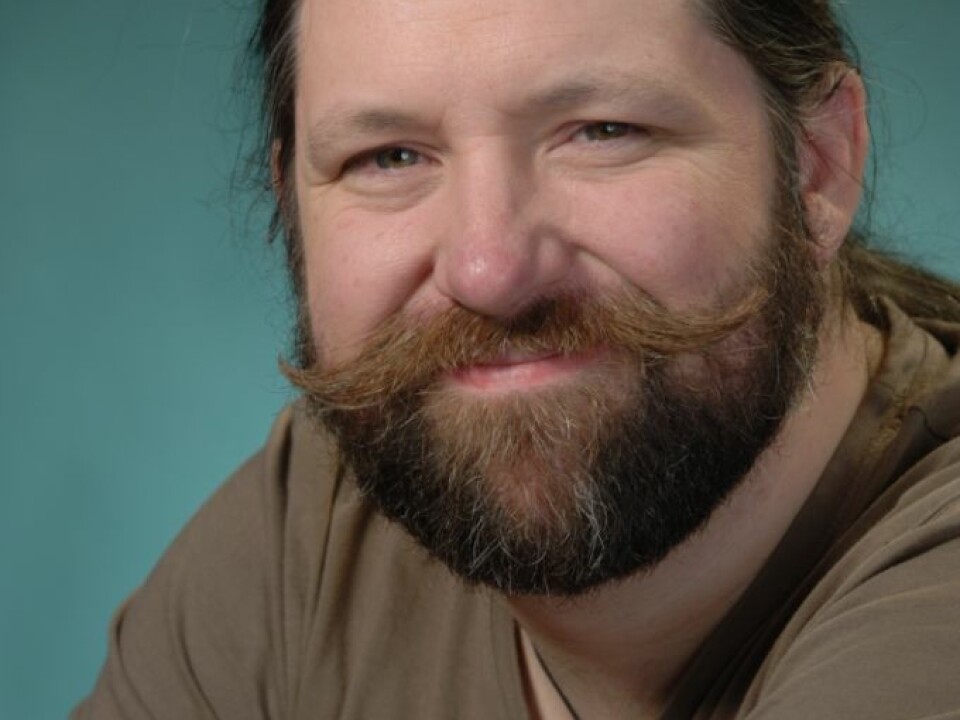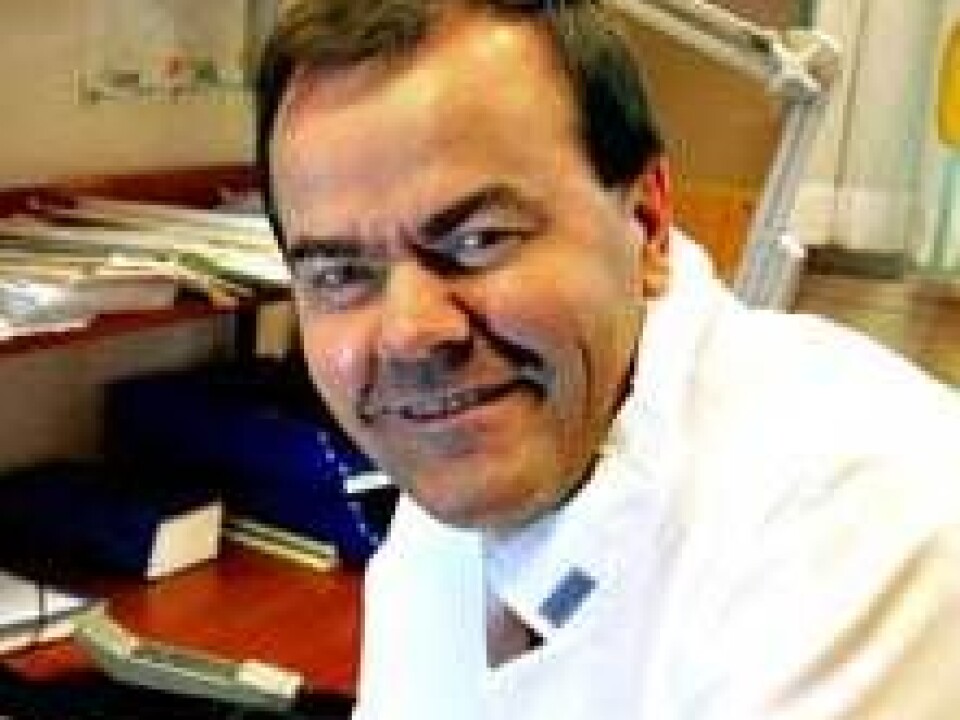
Why do men grow bald?
Why do men - and not women - lose their hair?. Scientists have the answers and some advice too.
Denne artikkelen er over ti år gammel og kan inneholde utdatert informasjon.
A glimpse in the mirror might confirm that your hairline has beaten a major retreat away from your brow.
At least you’re not alone. Half of all men in Norway begin losing their hair around the age of 50.
But why do men grow bald? Are we the only species in the animal kingdom that loses cranial hair?
Is there anything we can do on our own to slow down the loss? Are there any evolutionary explanations for baldness – does a bald pate have a function?

Researchers have lots of answers and also some advice to men who seek to maintain their mop.
Castrated choirboys
“Among the factors contributing to hair loss are sexual hormones,” says Per Jakobsen, professor of zoology at the University of Bergen.
Jakobsen says that one way to ensure against hair loss is to sacrifice something else.
During the Middle Ages and nearly into the 1800s, certain choir boys with particularly beautiful voices were castrated before reaching puberty to avert the change of voice.

“It was noticed that none of these boys grew bald, so it became clear that sexual hormones play a role,” says the professor.
Half of all males
Around 30 per cent of men today have started losing or have lost their hair to a great degree by the time they reach the age of 30.
When they reach 40 that percentage rises to the equivalent number. Likewise with age 50 – by then half of all men have started to shed their locks.
These figures are for Caucasian – white − males.

"Variations are seen around the world. For instance only one in four Chinese men have begun to lose their hair at age 50,” says Jakobsen.
Researchers have a theory about this disparity.
To explain that theory we first have to take a look at what happens with the hair follicles of balding men.
Blame it on the hormones
“Natural loss of hair is called androgenic alopecia,” says Zoologist Per Jakobsen.
Alopecia means loss of hair and the natural type that so many men experience is androgen, meaning it’s caused by steroid hormones.
This differentiates it from other types of hair loss that are attributed to disease.
Researcher and dermatologist Cato Mørk explains how hormones affect the manes of so many men.
Who lose their hair?
Enzymes in male bodies convert testosterone – the principal male sex hormone - into dihydrotestosterone.
“The amount of this enzyme one has is hereditary but it’s uncertain whether it’s determined by the mother’s or the father’s genes, or perhaps both,” says Mørk.
Dihydrotestosterone is a hormone that, among other things, makes hair shorter and thinner.
Scientists think Asian men have less of this enzyme in their follicles, which is why they are more prone to keeping hair than Caucasian men.
These enzymes don’t accumulate with age, according to the dermatologist. What occurs is a slow process and it takes a long time before a man starts experiencing the resulting hair loss.
Another factor is the number of receptors a man has on his head. The more the receptors, the greater the hair-loss.
Men can also have plenty of enzymes and testosterone, but still keep the hair on their crowns if they have few of these receptors up there.
Why not women?
“Because the male sexual hormone testosterone has the biggest impact on hair, women don’t lose hair the same way,” explains Dermatologist Cato Mørk.
When women reach menopause, their levels of the female sex hormone estrogen drops, and the testosterone they always had in their bodies starts to have more effect.
This can lead to thinner hair growth for women, but it’s more equally distributed, rather than in a receding hair line as in men.
Even cowboys get the blues
"Hair loss can be traumatic for many men, because hair on your head is a sign of youth,” says Zoologist Per Jakobsen.
“Women are worried about fat, men about the loss of hair.”
If it’s any consolation, we aren’t the only members of the animal kingdom who lose our hair.
Some animals with furless heads are alluring to more females than others. The same can be said for certain bald football players and actors.
Animals go bald too
The zoologist says that chimps become bald in nearly the same way as we do. Some of the males lose the hair on top their heads.
All stub-tailed macaques lose their hair − both males and females.
Jakobsen says this is because both sexes of this monkey species have more hormone receptors atop their heads.
Some male Tsavo lions in Eastern Kenya also grow bald. This loss of manes doesn’t occur with any other lions.
Researchers have seen that Tsavo lion broods consist of more females than those of other lions with full manes.
“This could indicate that bald heads might have formerly had an alpha function,” says Jakobsen, but he adds this is just one of many theories about the causes of baldness.
More mature and less aggressive
According to Jakobsen some researchers claim baldness is the next step in our naked ape development – our evolution from a furry hominid, also known as great apes, to one with hair here and there.
“But nobody is certain about that. What we do know is that men who are bald are regarded as more mature and less aggressive than other people,” he says.
However, as bald men also tend to be older men, it’s hard to say whether it’s the lack of hair or the age which is the key factor at play.
The researcher can’t say when human males first started to go bald.
“Hair doesn’t fossilize like bones do. But as far back as historical documentation goes, men have grown bald,” explains Jakobsen.
Child care rather than making children
Petter Bøckman is a zoologist at the Natural History Museum in Oslo.
He thinks it’s possible that baldness evolved as a survival ploy.
The idea is that men are less attractive with less hair and thus stay home and take care of the kids rather than womanizing.
“Men usually get bald after they’ve finished sowing their oats. Then they are more useful for the tribe as caretakers of the children they have already fathered,” he says.
Bøckman thinks humans lose hair more than animals do because we live so long.
“We can measure lifetimes in heartbeats, and humans live about four times longer than could be expected by our total number of heartbeats,” says the zoologist.
Since we are more successful at longevity than other animals, we also encounter more symptoms of age.
“In zoos we see that animals get some of the same old-age symptoms that we encounter. They can lose hair and become enfeebled. In the wilds they would be eaten by a predator once they no longer could keep up with the pack,” asserts Bøckman.
Available medicines
If you Google “hair loss” you can’t avoid ads that promise to restore your locks.
“There are lots of rip-offs out there,” says Cato Mørk.
Mørk is a former chief physician at the dermatological ward of the Oslo University Hospital and now runs a private dermatology centre.
He says there is hope for men who want to keep their hair.
“We have medicines that curb the enzymes which balding men have in surplus. When treated, 80 percent of patients have just as much hair, or more, a year after treatment.”
The medicines can stop the loss of hair, but they don’t restore the hair that is lost.
“We can bring dying hair back to life, but we can’t do anything to revive dead hair follicles,” says he dermatologist.
These hair medicines can have side-effects such as a reduction of libido and cause erection problems, but this is rare and usually just a temporary problem, according to Mørk.
Use a cap if you want to
Parents tend to propitiate myths, such as the one that you can lose your hair if you wear a cap all the time, even indoors.
The dermatologist refutes this claim.
Nor do diet and B-vitamins have any impact on our manes, according to Mørk.
“You can’t eat your way to a better head of hair. Hair loss is caused by sexual hormones, not by food or head gear.”
-----------------------------------------------------
Read this article in Norwegian at forskning.no
Translated by: Glenn Ostling






























